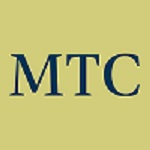Want Accountability in Higher Education? Watch the Gainful Employment Regulations

Minding the Campus
Andrew Gillen
March 28, 2023
The higher education accountability movement has seen very little progress over the years. The main success was the establishment of Cohort Default Rates, which revoked financial aid eligibility for colleges where too many students defaulted on their student loans. But this was both obscenely forgiving (a college could only lose eligibility if 30% or more of its students defaulted) and short-lived—the emergence of income-driven repayment plans has rendered Cohort Default Rates obsolete, since, under these plans, students can make payments of $0 and still not be considered in default.
The lack of accountability is a problem. While most colleges offer a legitimate education at an affordable price, there is little stopping some colleges from offering an education in name only at inflated prices, paid for with federal student loans. And if the student later defaults on his debt, the college gets to keep all the money while saddling him with a lifetime of financial distress and taxpayers with a bill that will never be repaid.
While there has been too little progress on accountability, there is one bright spot that is consistently yielding innovative approaches to it: the progressive crusade against for-profit colleges using gainful employment.
If there is one thing progressives hate in education, it’s profits. Of course, not all profits are equally hated. Public and private non-profits don’t have shareholders, so they turn their profits into extravagant salaries and benefits for faculty and administrators. For example, the highest-paid private non-profit university president made $5 million last year, and the highest-paid public university president made $2.2 million. The average faculty salary for full professors at private non-profit doctoral institutions is over $200,000.
Continue Reading
Share







